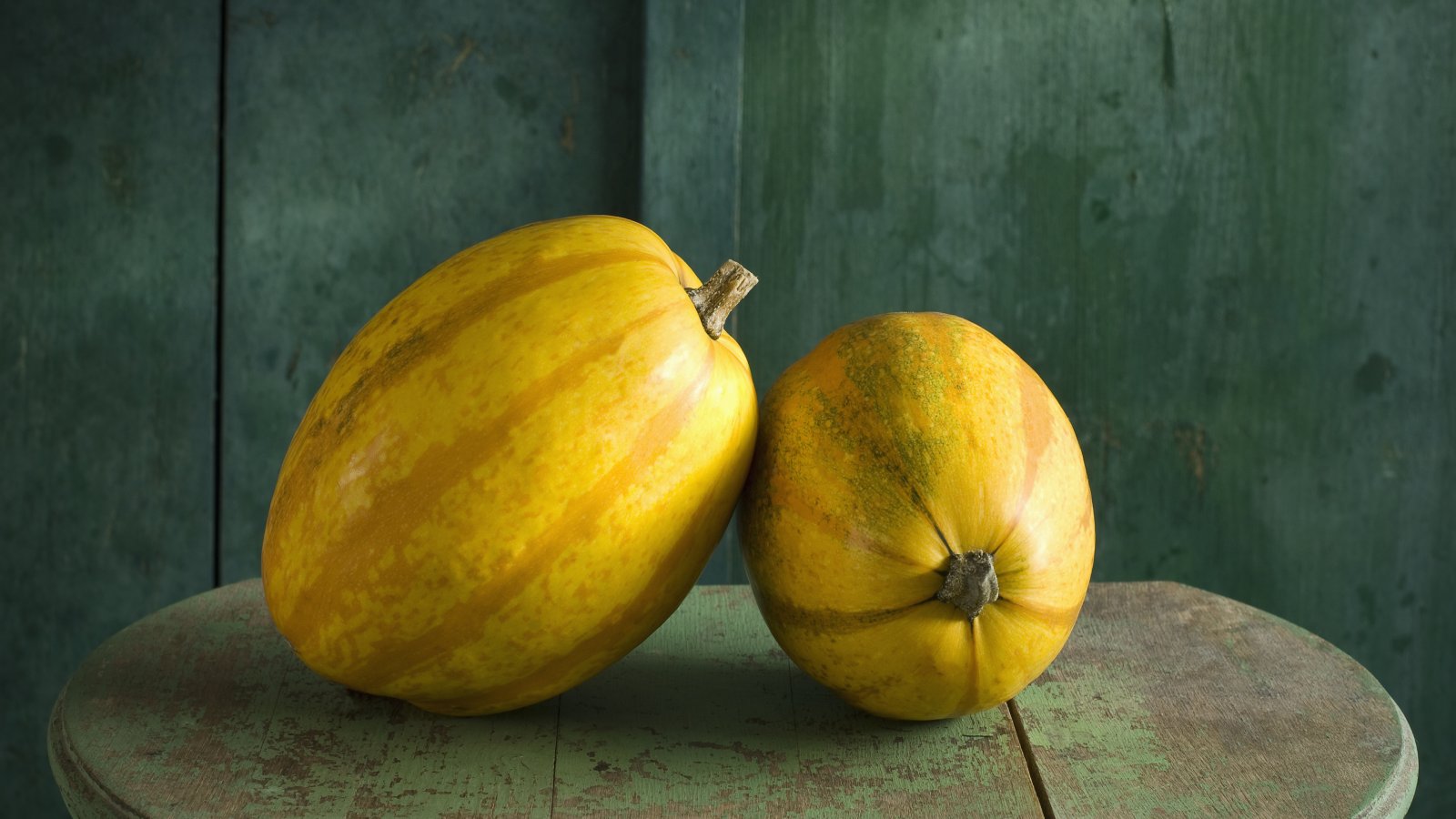Spaghetti Squash Plant: Tips On Growing Spaghetti Squash

Native to Central America and Mexico, spaghetti squash is from the same family as zucchini and acorn squash, among others. Spaghetti squash growing is one of the more popular gardening activities because the plant is easy to grow and provides a large amount of essential nutrients.
How to Grow and Store Spaghetti Squash
In order to effectively grow spaghetti squash, which is considered a winter squash, you must understand what the spaghetti squash plant needs in order to grow to its typical 4 to 5 inch (10-13 cm.) diameter and 8 to 9 inch (20-23 cm.) length. Here are some tips on growing spaghetti squash and some basic information on how to grow and store spaghetti squash:
- Spaghetti squash requires warm soil that is well-drained and fertile. Aim for no more than 4 inches (10 cm.) of organic compost.
- Seeds should be planted in rows in groups of two about 4 feet (1 m.) apart about an inch or two (2.5-5 cm.) deep. Each row should be 8 feet (2 m.) from the next.
- Consider adding black plastic mulch, as this will keep weeds away while promoting soil warmth and water conservation.
- Make sure to water the plants 1 to 2 inches (2.5-5 cm.) each week. Drip irrigation is recommended by Utah State University, if possible.
- It takes about three months (90 days) for the winter squash to mature.
- Winter squash should be stored in an area that is cool and dry, between 50 and 55 degrees F. (10-13 C.).
When to Harvest Spaghetti Squash
According to Cornell University, you should harvest spaghetti squash when its color has changed to yellow, or more appropriately, golden yellow. In addition, harvest should take place prior to the winter's first heavy frost. Always cut from the vine rather than pulling, and leave a few inches (8 cm.) of the stem attached. Spaghetti squash is rich in Vitamin A, iron, niacin, and potassium and is an excellent source of fiber and complex carbohydrates. It can be baked or boiled, making it a great side dish or even main entrée for dinner. The best part is, if you grow it yourself, you can grow it organically and consume food that is free from harmful chemicals and ten times more delicious.
Sign up for the Gardening Know How newsletter today and receive a free copy of our e-book "How to Grow Delicious Tomatoes".